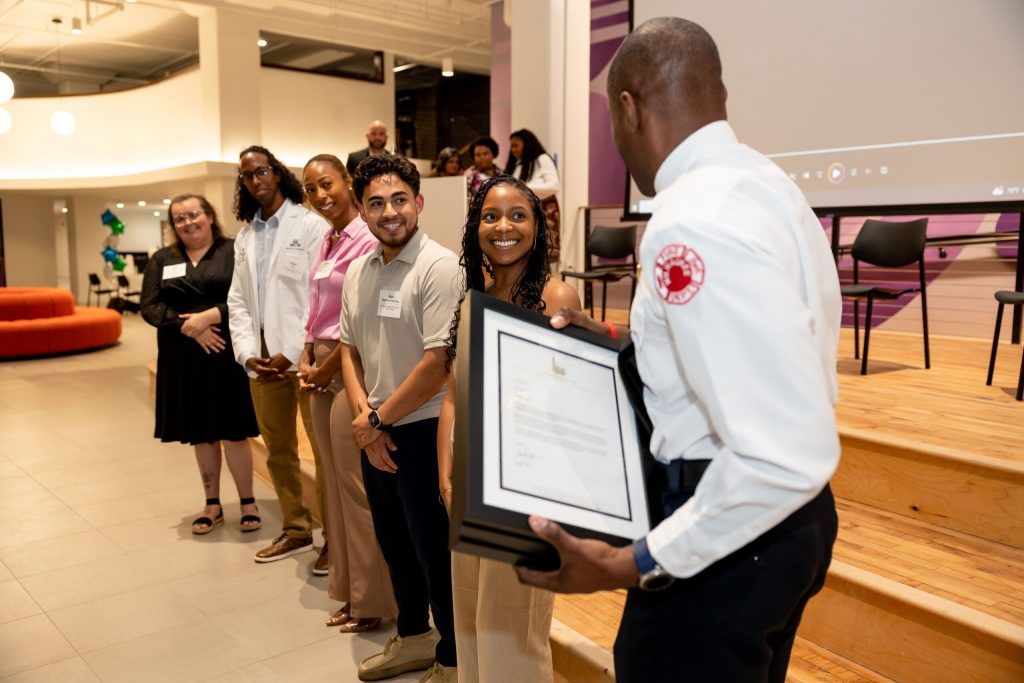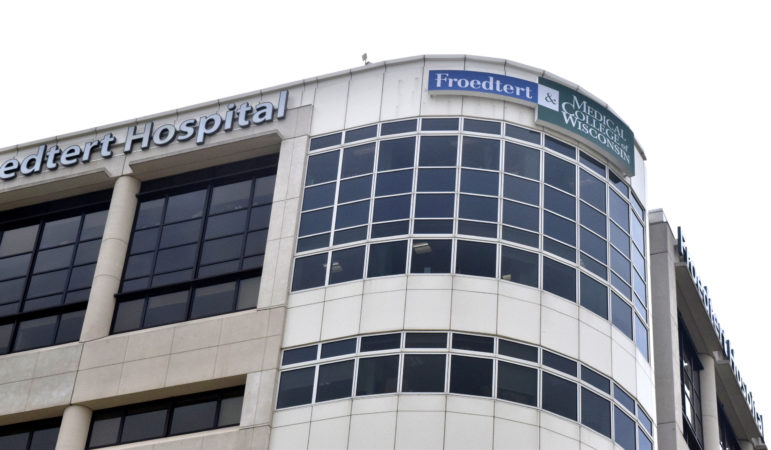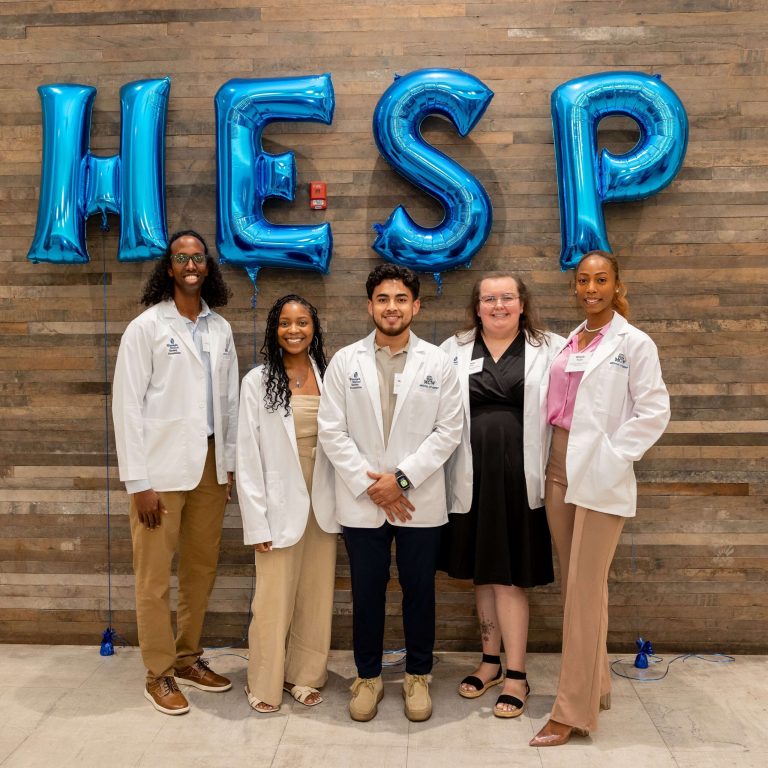New MCW Program Aims to Train More Doctors Who Stay in Milwaukee
Full tuition for 5 students in Medical College of Wisconsin program.

A new program at the Medical College of Wisconsin aims to have more doctors train and stay in Milwaukee. Photo courtesy of the Medical College of Wisconsin
Ciara Ayala was born and raised in Milwaukee. Living on the city’s south side, Ayala said she’s seen what she calls a “disconnect” between residents of the city and the health care system.
She told WPR she’s had a hard time “finding physicians that look like me and also have experiences similar to myself in terms of how they engage with health care practices.”
A new Medical College of Wisconsin program aims to change that. The program, called the “Health Equity Scholars Program,” hopes to increase the number of physicians who train and eventually practice in the city of Milwaukee.
The program began in early 2024. Five students are in it now, including Ayala, who said she plans to stay in Milwaukee when she becomes a doctor. All five students have received a full scholarship from the Medical College of Wisconsin as part of the four-year program.
“I felt like the most advantage I could be as a physician is staying here and seeing the people that I’ve grown up with and having that impact,” Ayala said. “I already have the relationships developed with them, so already being aware of the situations that they’re in, I think I would have the most impact.”

A study by Froedert and The Medical College of Wisconsin found that COVID-19 patients who used a remote symptom monitoring portal had a 32 percent lower rate of hospitalization than those who did not. Gretchen Brown/WPR
Michael Levas, the co-director of the Health Equity Scholars Program, said there are other programs at the Medical College of Wisconsin that expose Milwaukee’s youth to a career in health care.
Levas runs the program with Cassie Ferguson, who is the other co-director.
“Our aim is to increase the number of our medical school graduates who choose to practice in the city of Milwaukee, and who are expertly trained to care, particularly for its underserved residents,” Ferguson said.
The program’s website says the students will be trained to “expertly care for and serve marginalized groups in Milwaukee communities.”
The program comes as there’s a shortage of doctors across the city and state. Wisconsin is projected to be short 2,263 doctors by 2030, according to the Cicero Institute.
“Low-income citizens are disproportionately affected by these shortages,” the Cicero Institute found.
It also comes as some hospital systems are cutting and changing services in Milwaukee and Southeast Wisconsin.
In those 12 zip codes, there is “fewer than one full-time primary care physician per 3,000 to 3,500 people, far below the number required to ensure access to essential healthcare services,” according to a statement from the Medical College of Wisconsin.
Ferguson said people who don’t have access to high quality health care or a primary doctor can be more at risk of infectious diseases. She said the teen birth rate is higher, the percentage of children who get lead poisoning is higher and the HIV infection rate is higher in those areas.
“It really touches on every aspect of our Milwaukee residents lives who live in and around those zip codes,” Ferguson said.

The five cohorts of the “Health Equity Scholars Program” are pictured here. Photo courtesy of the Medical College of Wisconsin
Students live, train together
Ayala and the other students sometimes train at Thrive on King on the city’s north side. They’ll also live there together once construction is complete.
“So the students really get a sense for that particular neighborhood of Milwaukee, but really a sense for the city of Milwaukee as a whole, because we bring in community leaders from all different neighborhoods and all different industries that are related to health equity,” Ferguson said.
“We’ve developed a little family, so it’s been a huge support system just having them in the classes, and being outside of the class and studying,” Ayala said.
Over 120 people applied for the program but only five were selected. Levas said their specialties and interests run the gamut. Four of the five are from Milwaukee as well.
“They’re varied in backgrounds and history, but the one thing they have in common is passion for health equity and for outcomes and for community-based medicine,” Levas said. “So they’re really outstanding.”
The idea for the program came during a brainstorming session between Levas and Milwaukee Fire Department assistant chief Josh Parish. They had planned to brainstorm ideas for an hour about how to keep more young professionals in the city of Milwaukee.
Three hours later, they had a plan.
Parish said the program is similar to the Milwaukee Fire Department’s cadet program, which has a similar goal of keeping more firefighters and paramedics in Milwaukee.
“We make it clear to the candidates all the time, we are building physicians for the city,” Parish said.
New Medical College of Wisconsin program aims to train more doctors who stay in Milwaukee was originally published by Wisconsin Public Radio.
If you think stories like this are important, become a member of Urban Milwaukee and help support real, independent journalism. Plus you get some cool added benefits.




















